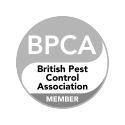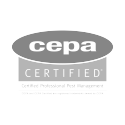Experts in Pest Control
Providing comprehensive pest control, bird control, insect control and environmental services through data-driven approaches to reduce your pest risk.
Discover why Contego is the no 1 national
pest control Company



Bird Season Is Here, Are You Prepared?
Spring brings a surge in bird activity—are your premises ready? Act now to implement bird control solutions before pest birds become a problem.
HUMANE BIRD Control SOLUTIONS TAILORED TO YOU
Get Ready For Nesting Birds
As temperatures rise, birds begin nesting. This seasonal shift can lead to property damage, health risks, and operational disruptions if left unchecked. If you’ve noticed birds nesting on your property, it’s crucial to act responsibly. Many bird species are protected by law, meaning improper removal could result in fines. However, proactive measures such as deterrents and habitat modification can help prevent future problems.
Need expert advice? Our team can assess the situation and recommend the best course of action.

Now Until June
Spring Preparation – Pests on the Rise
As spring arrives, so does an increase in common pests like birds, flies, and rodents. Milder temperatures and longer daylight hours create ideal conditions for nesting birds and insect breeding, leading to infestations in warehouses, food production sites, and outdoor spaces. Birds can cause structural damage and hygiene concerns, while flies contaminate food sources and spread bacteria.
Stay one step ahead—schedule your spring pest control assessment today.

-640x480.jpg&w=1920&q=100)
Spring Cleaning Checklist Based On Insights
At Contego, we don’t just tackle the problem—we safeguard your business against any future infestations. The secret lies in uncovering the root cause. Here, we’ve compiled a list of our common findings to guide you. Download this free guide to make your spring cleaning a breeze and to help keep your space pest-free!
Save Time & Money With Commercial Bird Proofing This Spring
Without bird proofing you risk additional costs such as guano removal services, extra reactive call out fee’s or
the loss of products due to contamination.
Spring Pests Wreaking Havoc
How You Can Prepare For Summer
With summer approaching quickly and temperatures on the rise, pest activity—particularly among insects—will start increasing at a rapid rate.
Warmer weather creates the perfect breeding conditions for flies, ants, wasps, and other nuisance pests, leading to infestations in homes, businesses, and outdoor spaces. Infestations can occur in homes, businesses, and outdoor spaces if left unchecked.
Our Plan Get's You Results
Being a proud member of the BPCA, we prioritise humane and environmentally-friendly pest control solutions to ensure minimal impact on the ecosystem.
Our tailored plans are meticulously crafted to address the unique characteristics of your site, delivering guaranteed pest-free results. We firmly believe that collaboration and synergy with our clients yield exponential outcomes; in our philosophy, 1+1 equals 3. By working together, we can amplify the effectiveness of our solutions and achieve a pest-free environment that exceeds your expectations while upholding the highest standards of ethics and sustainability.
Companies we have helped
Discover how we have successfully assisted numerous companies in effectively managing pest problems.
Looking for a long term fix that works for your site needs?
Connect with our team of experts at Contego to begin fortifying your premises and shielding your business from the financial risks and reputation damage associated with pest birds and rodents. Let's work together to implement effective pest control measures that ensure a pest-free environment and secure your peace of mind.
Spring Pest Insights
View AllFrequently Asked Questions
Defend yourself against pests
Take the first step towards a pest-free environment by reaching out to us for a reactive call out. Our dedicated team guarantees to be at your location within 48 hours to address any pest concerns promptly. Don't let pests disrupt your peace of mind any longer - defend yourself with Contego's expert services. Contact us now to schedule a visit and receive a personalised quote tailored to your needs.




































